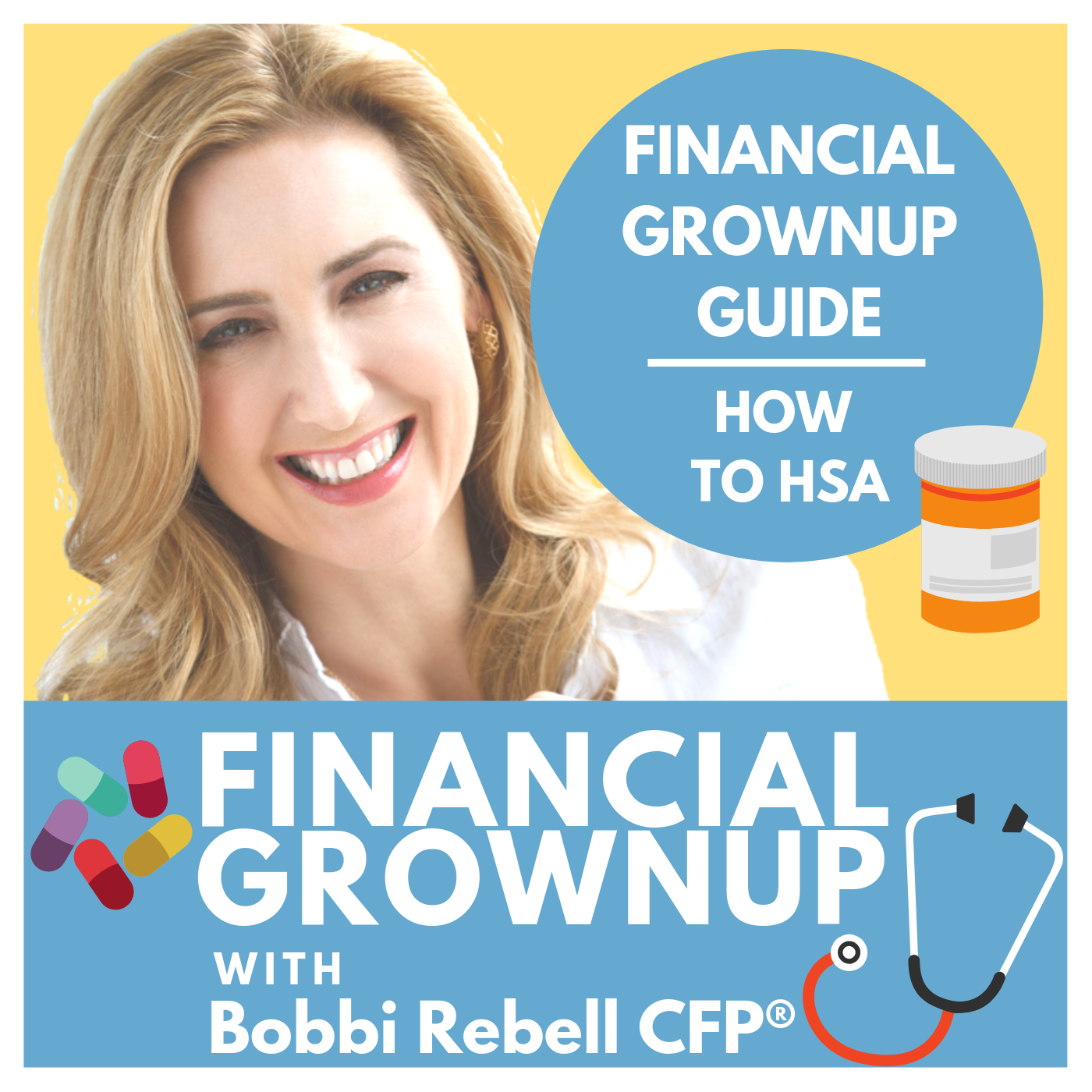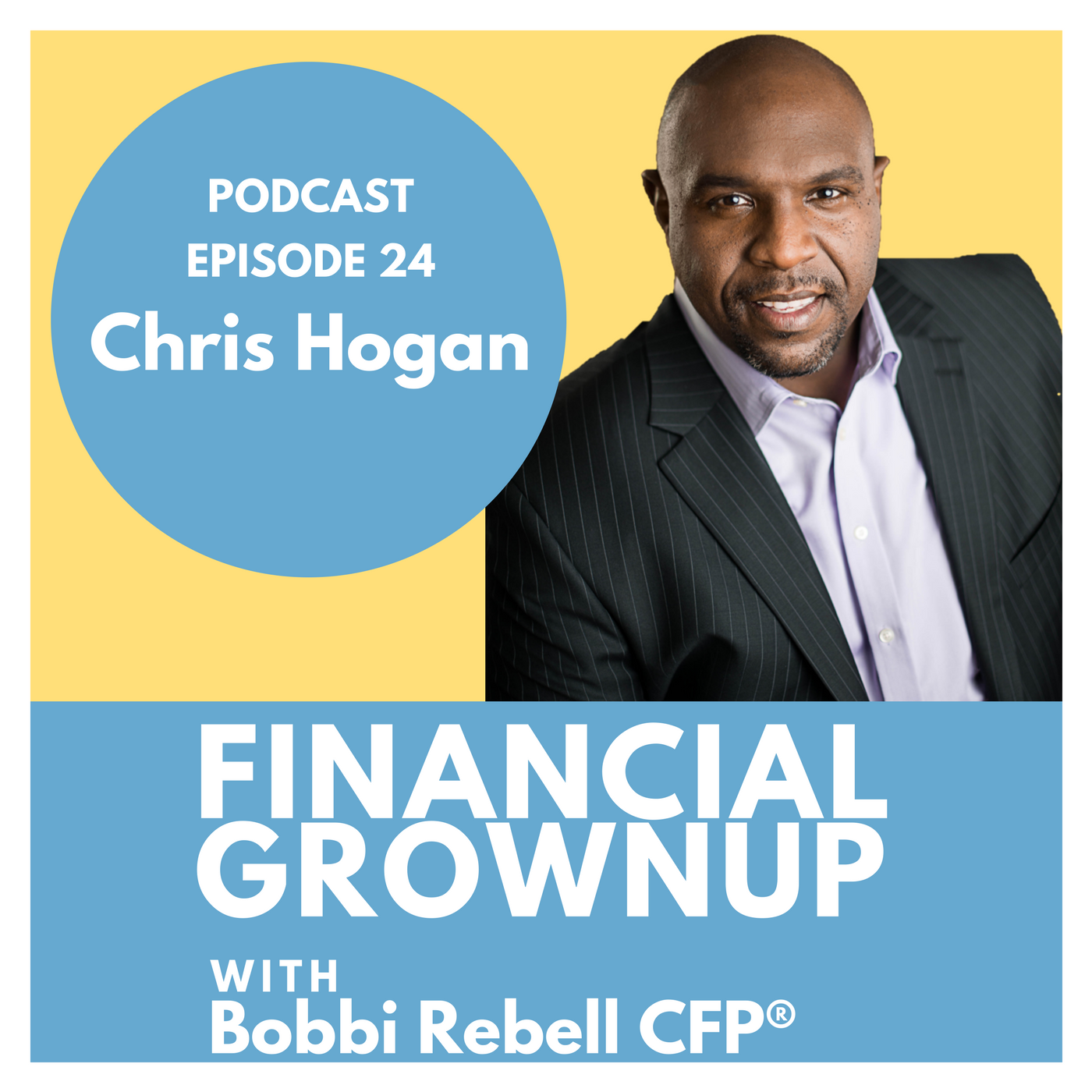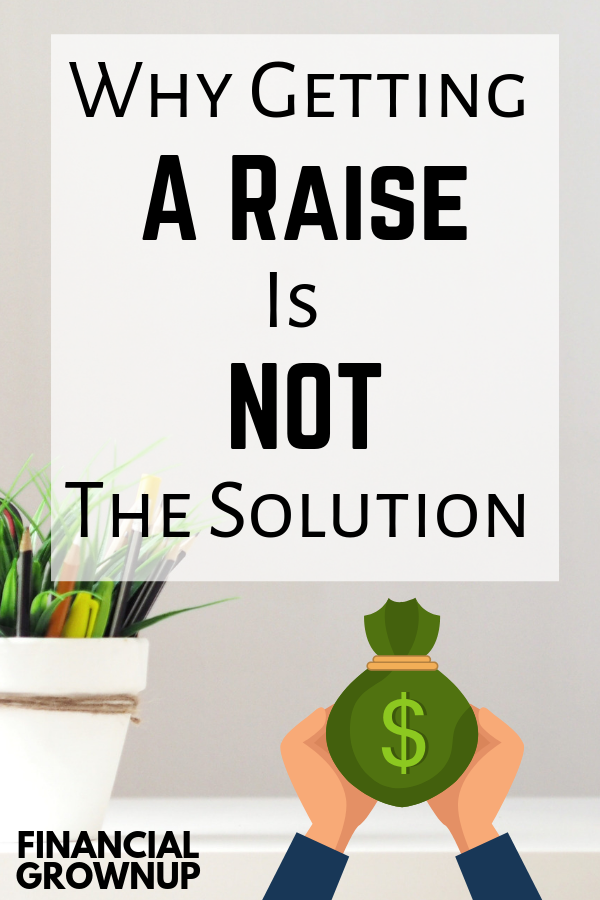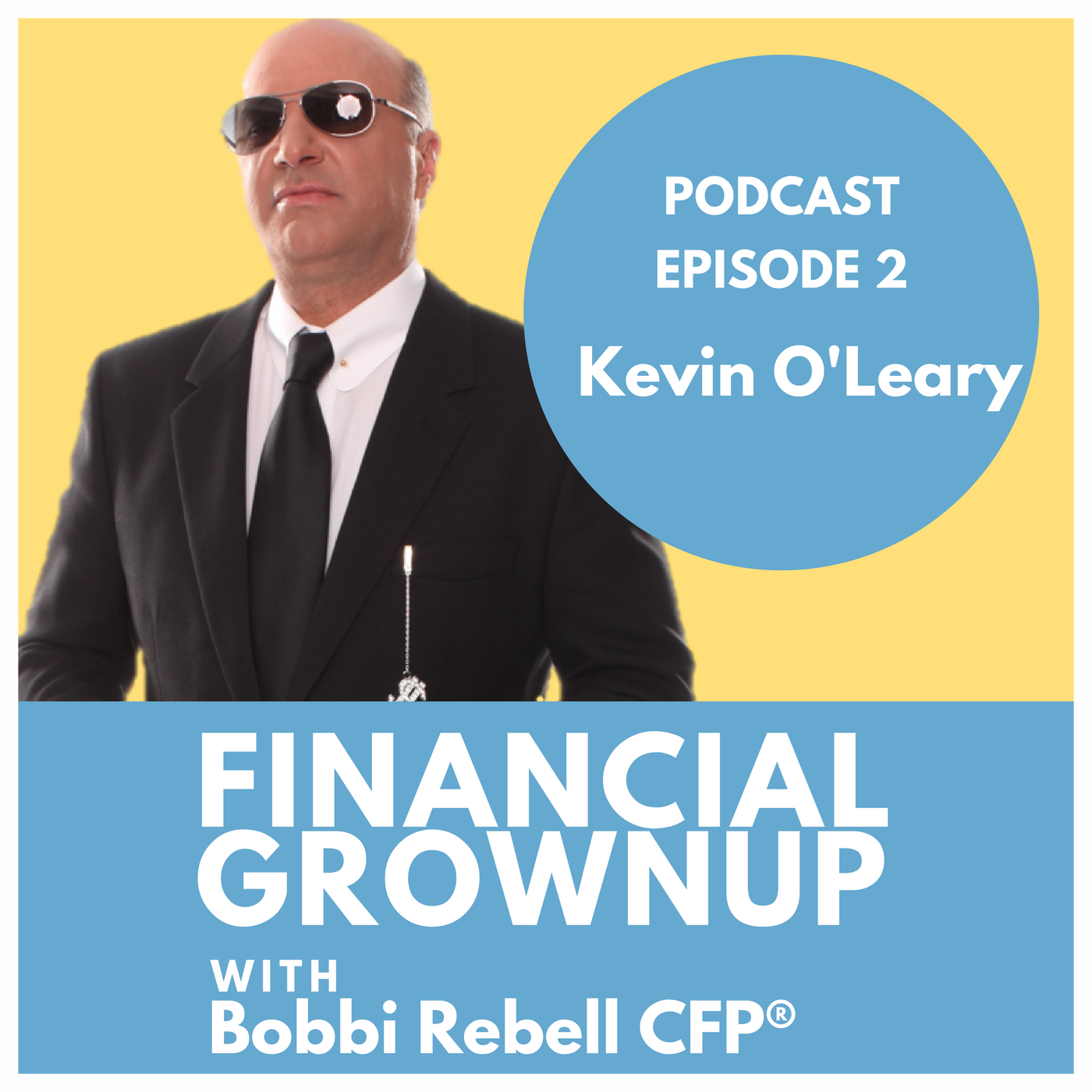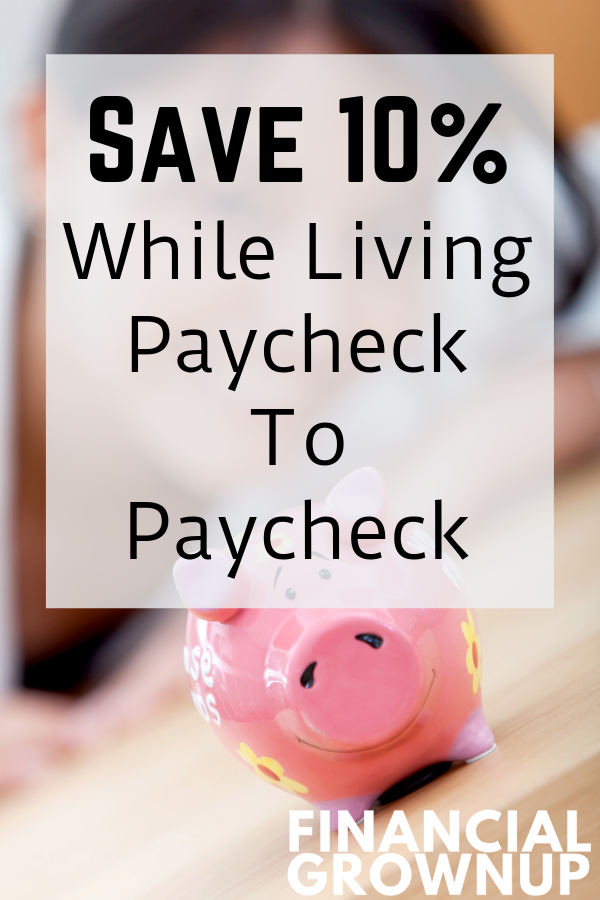Jessica Zweig leads the thriving personal branding business: Simply Be. But the author of the new book "Be: A No-Bullsh*t Guide to Increasing Your Self Worth and Net Worth by Simply Being Yourself” only got to this point in her life because she was able to exit a toxic business relationship that brought her personally and financially to rock bottom. Plus she shares an everyday money tip that will help us reach our goals during the pandemic, no matter what obstacles we are facing.
Jessica’s Money Story:
My first company was a magazine that I ran called Cheeky for seven years, from 2008 to 2014. I was 26 when I started that company. We launched the biggest platform for women in Chicago. We were the it fashion, food blog in the city. We had 100,000 local readers. And from the outside we were this really sparkly, successful business but on the inside we were very dysfunctional, toxic, and weren't really succeeding. And it was our first business. We were so young. I was 26, she was 24. I didn't know her that well when we went into business which is I think a common mistake people make when they meet someone they really love and they have that spark and then they get into business together and then they're like, "Oh my gosh. Business is like running a family and a marriage. It's such an intense relationship." And we really didn't know each other and so we just made a ton of mistakes. We opened up a ton of credit cards. She was managing the books, I was doing sales. We were so young, so green, so inexperienced and seven years later we had $75,000 worth of debt and I wanted to leave the business and she didn't. And so, I was willing to settle for my half of the debt and she was very, very upset with me for leaving and it was a really tough decision. I loved her, I loved the business. I mean, we were like sisters. We had a love, hate. After seven years of building something great with someone you do have a relationship. So it wasn't an easy thing but I think in many ways she looked at me like I was abandoning her but I was really just following my truth. It had run its course. I couldn't do it anymore. And I did want to clean up my side of the street and pay off my 50% of the debt with a payment plan because that's all I could afford. And I got a lawyer and she got hers and it just got really, really, really ugly and it took about seven, nine months for us to settle it. And I ended up paying 50% of the debt in one fell swoop and I had very little money in savings. I ended up having no choice but to just clear it and start from scratch.
Jessica’s Money Lesson:
Communicate. Be willing to have hard conversations. Money makes people funny. I also would say, don't ever talk about money in those conversations on email or on Slack or even on the phone. We unfortunately can't get together in person so if you Zoom, Zoom, but in-person is best. Having sacred space around conversations, honoring this is uncomfortable, honoring this is important, honoring this is going to make or break our business if we don't talk about it. And we just didn't communicate. Our communication style was so dysfunctional and broken. Because if you do then you won't need to ceremonialize these conversations so much because you'll already be in the same vibration, in the same page.
Jessica’s Money Tip:
So I actually write about this in my book. I have a whole chapter on accountability partners. Because attempting to do anything great and big and significant for your life you need someone to keep you accountable. You need someone to hold you in check. So whether that's writing a book, launching a business, saving money, paying off your debt, having a partner in it is I think the key to the success of it all. And to be frank with you, I'm very fortunate. So the pandemic disrupted my business in a lot of beautiful ways, in a lot of challenging ways. And one of the things I did is I applied for the PPP. I had a finance team at the time that I didn't really fully like, they were fine, and they wanted to charge me $10,000 to apply for the PPP loan which I thought was the most counterintuitive request I've ever seen because we were a small business going into a pandemic applying for a loan and they wanted to charge us money.
Bobbi’s Take:
Financial Grownup Tip #1:
Some of the greatest business and financial success stories come from people who have survived toxic business relationships, and used the lessons from those crushing and painful experiences to thrive in their next venture. - This past week the dating app Bumble went public. Its founder, Whitney Wolfe Herd started Bumble in 2014.. after she very publicly left the dating app Tinder, where she was a co-founder- after a breakup with another co-founder. She is now the youngest female CEO to take her company public and is worth over a billion dollars.
Financial Grownup Tip #2:
So many of us are having trouble staying on track to meet our goals during the pandemic- in part because it feels like no one is watching. I mean after all. We can and do literally work in our pajamas. We can quite literally take a nap between meetings. So it is time. Get an accountability partner. Get someone who will be committed to you- and to whom you will also be committed to keeping on track. And if you both aren’t doing that- break up fast and find another accountability partner. Nothing wrong with taking it a little easy, but this more quiet time will come to an end, and the opportunity to get to your goals without so many distractions should not go to waste.
Get your copy of Be: A No-Bullsh*t Guide to Increasing Your Self Worth and Net Worth by Simply Being Yourself.
Follow Jessica!
Twitter - @jessica_zweig
Instagram - @jessicazweig
Jessica’s website - www.jessicazweig.com
Facebook - Jessica Zweig
LinkedIn - Jessica Zweig
Follow Bobbi!
Twitter - @bobbirebell
Instagram - @bobbirebell1
Merch - grownupgear.com
Full Transcript:
Bobbi Rebell: Question for you guys, are we ever going to get back to that whole dress-up for work thing the way we used to? I don't know. But one thing I do know is it is time to get out of those PJ's and those grungy t-shirts and we need to give ourselves an upgraded but still super comfy wardrobe that makes us smile and ideally makes our coworkers, our friends and our family smile as well.
Bobbi Rebell: I have so many friends that I've wanted to send little pick me ups to to let them know it's all good and that includes you. So that's why I created Grownup Gear a fun line of t-shirts, sweats, pillows, mugs, totes, and more that I guarantee will give you and everyone that you're Zooming with all day long a good giggle. Grownup Gear is about saying the things out loud that we tell ourselves silently like when you wake up and you look in the mirror and you think, "I can't believe I'm a grownup either." Or maybe you just want to be honest that you are still a grownup in progress or you want to send a gift congratulating a friend for paying off their debt. The most comfy sweatshirts, t-shirts, tote bags, mugs, pillows, and more give it to yourself or your favorite grownup or almost grownup friend. Go to grownupgear.com to check it out. For discount codes and sales follow us on Instagram at our new handle at @GrownupGear and DM us with any questions. And thank you because by supporting Grownup Gear you help support this free podcast.
Bobbi Rebell: The debt and the brokeness has made me value money today and cherish money and respect money and operate my money with so much more reverence and care than I think I would've if I hadn't reached that rock bottom. You're listening to Financial Grownup with me, certified financial planner Bobbi Rebell author of How To Be a Financial Grownup. And you know what? Being a grownup is really hard especially when it comes to money but it's okay. We're going to get there together. I'm going to bring you one money story from a financial grownup, one lesson, and then my take on how you can make it your own. We've got this.
Bobbi Rebell: Welcome everyone to a new episode of the Financial Grownup Podcast. We share money stories here that had big impacts on our guests lives and of course then they share with us the lessons from them. I'm your host Bobbi Rebell, Journalist, Certified Financial Planner and author of the book How To Be a Financial Grownup. If you're new here welcome. I'm so glad you found us.
Bobbi Rebell: So that clip that you heard at the top of the show was from author and personal branding expert Jessica Zweig. Jessica has a new book out called Be, A No Bullshit Guide to Increasing Your Self-Worth and Net Worth by Simply Being Yourself. I have to say I love that title. The thing about Jessica is that if you don't know her you would never know all the things that she has had to overcome to well be where she is now that included a toxic business relationship that lasted for seven years. The breakup left her with nothing hitting rock bottom at age 33, even having to ask her parents for money just to pay her phone bill. Just when we think we will be hitting our grownup stride you never know what's going to hit us. There is a lot to learn from this remarkable woman and she does not hold back in this interview. Here is Jessica Zweig.
Bobbi Rebell: Jessica Zweig, you are a financial grownup. Welcome to the podcast.
Jessica Zweig: Thank you so much for having me Bobbi. I'm pumped to be here.
Bobbi Rebell: Well, I am pumped to have you here. Your book Be, I'm holding it up by the way, Be, A No Bullshit Guide to Increasing Your Self-Worth and Net Worth by Simply Being Yourself is about to come out and it's your first book. Congratulations.
Jessica Zweig: Thank you so much. You know how much goes into it so thank you for saying that.
Bobbi Rebell: I really enjoyed learning so much about you and what you teach people in the book. What's interesting is you come across as having it all together which you do now I'm going to say but it wasn't always the case. You brought with us a money story that is sadly something many of us can relate to but often don't know what to do with, I should say that often don't know what to do about, and that is finding ourselves in toxic relationships personally and in business in work environments. Tell us your money story Jessica.
Jessica Zweig: My first company was a magazine that I ran called Cheeky for seven years, from 2008 to 2014. I was 26 when I started that company. We launched the biggest platform for women in Chicago. We were the it fashion, food blog in the city. We had a hundred thousand local readers. And from the outside we were this really sparkly, successful business but on the inside we were very dysfunctional, toxic, and weren't really succeeding. And it was our first business. We were so young. I was 26, she was 24. I didn't know her that well when we went into business which is I think a common mistake people make when they meet someone they really love and they have that spark and then they get into business together and then they're like, "Oh my gosh. Business is like running a family and a marriage. It's such an intense relationship."
Jessica Zweig: And we really didn't know each other and so we just made a ton of mistakes. We opened up a ton of credit cards. She was managing the books, I was doing sales. We were so young, so green, so inexperienced and seven years later we had $75,000 worth of debt and I wanted to leave the business and she didn't. And so, I was willing to settle for my half of the debt and she was very, very upset with me for leaving and it was a really tough decision. I loved her, I loved the business. I mean, we were like sisters. We had a love, hate. After seven years of building something great with someone you do have a relationship. So it wasn't an easy thing but I think in many ways she looked at me like I was abandoning her but I was really just following my truth.
Jessica Zweig: It had run its course. I couldn't do it anymore. And I did want to clean up my side of the street and pay off my 50% of the debt with a payment plan because that's all I could afford. And I got a lawyer and she got hers and it just got really, really, really ugly and it took about seven, nine months for us to settle it. And I ended up paying 50% of the debt in one fell swoop and I had very little money in savings. I ended up having no choice but to just clear it and start from scratch. Bobbi Rebell: When you look back were there red flags that you should have spotted in the relationship, in the business in terms of the skills that you both brought?
Jessica Zweig: From day one. I mean, there were massive red flags. I think I realized three months in just how different we were but we were young and we were so naive and we both really loved this business. This magazine Cheeky was our baby. And so I didn't want to give it up and she didn't want to give it up and at the core there was a magic connection with us. We wouldn't have created what we created if there wasn't that synergistic spark. And we both loved each other to a degree which was what made it so difficult.
Jessica Zweig: But there were red flags and it was honestly one of the most toxic relationships of my life. I mean, we were together for seven years and we were water and vinegar. We were just totally different people. And I'm not saying I was better or she was worse, we were just different. I've come to so much peace and love and honestly forgiveness for myself first in the way that I showed up in that relationship as much as her and how she showed up in the relationship which I think has really been a huge key to me soaring in the last few years because I really did my own work.
Jessica Zweig: I think it's so easy to point fingers at people when they burn us or they hurt us or they come after us. There's that expression when you point one finger at someone, I mean do it, you're pointing three back at yourself. So you really do have to look at yourself in any sort of situation but when it comes to money it's especially loaded and I could still be angry, I could still be bitter, I could still be resentful. I don't feel any of those feelings. And it was the greatest learning lesson of my life. I applied all of those mistakes, all of those failures to simply be and simply be is so successful and it wouldn't have been unless I had that seven year chapter and run of making all of those mistakes.
Jessica Zweig: So, I think that everything happens for a reason and I feel like the debt and the brokenness has made me value money today and cherish money and respect money and operate my money with so much more reverence and care than I think I would have if I hadn't reached that rock bottom. So, everything happens for a reason and divine order. It's happening for you not to you even though it can really feel the opposite in the moment. I wouldn't be who I am without that business and that failure.
Bobbi Rebell: Can you me a specific example of something that happened that highlighted your differences? It doesn't have to be your biggest fight or something but something especially money related that you just never agreed on.
Jessica Zweig:I think we were both pretty irresponsible with the way we spent the business's money. I really wanted to grow it and scale it and exit. I wanted to be that type of entrepreneur and she wanted it to be a more lifestyle business. If you're going to go into business with anyone whether it's a business partner or someone on your team or your leadership team to really understand those nuances and get everyone on the same page. Because it sets the foundation for the type of business and the rate in which you want to grow and how you want to operate and who you want to do business with so, so much. And we just didn't have the skills. We were so young. We didn't have the tools to talk about money and business at that level. We were green as grass. So, of course it netted out the way that we netted out. And we also were really done when we opened up our credit cards. She was the personal guarantor on the credit cards. It was just mistake, after mistake, after mistake.
Bobbi Rebell: Yeah. I love that you're talking about the fact that it is so hard to talk about money and it sounds like you guys didn't have a lot of talks about money and how you were going to structure your firm and how you were going to fund it before you started it. What is the lesson for our listeners as we put it all in context?
Jessica Zweig: Communicate. Be willing to have hard conversations. Money makes people funny. I also would say, don't ever talk about money in those conversations on email or on Slack or even on the phone. We unfortunately can't get together in person so if you Zoom, Zoom, but in-person is best. Having sacred space around conversations, honoring this is uncomfortable, honoring this is important, honoring this is going to make or break our business if we don't talk about it. And we just didn't communicate. Our communication style was so dysfunctional and broken and I think actually way, way up and make the right decision to partner with the right people in the first place. Because if you do then you won't need to ceremonialize these conversations so much because you'll already be in the same vibration, in the same page. And yet money makes people funny no matter what and so you really have to recognize that in yourself and in the others and bring as much consciousness and integrity to those kinds of negotiations, conversations, whatnot.
Bobbi Rebell: I could talk to you forever about this but I want to get your everyday money tip because it's something that I am already implementing for 2021 and that is having accountability, having an accountability partner. Talk about that.
Jessica Zweig: Yeah. So I actually write about this in my book. I have a whole chapter on accountability partners. Because attempting to do anything great and big and significant for your life you need someone to keep you accountable. You need someone to hold you in check. So whether that's writing a book, launching a business, saving money, paying off your debt, having a partner in it is I think the key to the success of it all. And to be frank with you, I'm very fortunate. So the pandemic disrupted my business in a lot of beautiful ways, in a lot of challenging ways. And one of the things I did is I applied for the PPP. I had a finance team at the time that I didn't really fully like, they were fine, and they wanted to charge me $10,000 to apply for the PPP loan which I thought was the most counterintuitive request I've ever seen because we were a small business going into a pandemic applying for a loan and they wanted to charge us money.
Jessica Zweig: And so, I brought in my husband who is a financial advisor, as well as you are. And his business had kind of slowed down, he couldn't go out and network, we were quarantining. And he's like, "Jess, I'll help you with the PPP." He took one look at my finance team and was like, "Dude, I can do this better." And so I fired my finance team and I hired my husband. And my husband and I have always obviously been partners and accountable to each other because we're married but bringing him into my business...
Jessica Zweig: He's now my CFO, he helps me run the shop, saving money, ensuring that our P and L's are always balanced, making sure we're net profitable. Having someone that I trust, obviously I trust no one more than my own husband but he has really allowed me to fly as the CEO because I know that he's got things covered. And we operate like a legit finance CFO to CEO. We take weekly meetings. He has an agenda. We run through every money in money out, hiring, investments, savings. We don't have any debt in our business. It's a really powerful person, obviously it's my own husband. But if you can have someone to pulse check you, to support you, to believe in you, to honestly be able to see the forest from the trees more than you can in your own project or business or money endeavor that is so key.
Jessica Zweig: And then another thing that I have done that has really allowed me to get out of debt and save money and feel really, really peaceful and abundant and my husband has helped me with this is we've set up an account. I call it my island account and it's a bank account we can only put money in. And if I needed to take money out I'd have to drive all the way across town in the worst hours, whatever. It's my island account. I can only send money to it, it can only grow. And I'm stacking my cheddar as my accountant once told me and my husband helps me ensure that money is being sent to that account every single month and that we're totally able to send that level of money over to that account and that's really grown our savings. My husband and I sleep well at night because of it.
Jessica Zweig: And so those are the key hacks that having my husband and having that account has changed honestly my financial wellbeing more than my finances but more of my financial wellbeing, which I think is key to vibrating at that level of abundance and attracting more.
Bobbi Rebell: That's such great advice. There's also a lot more great advice and I'm picking up your book now even though I know we're on audio and your book, okay I'm going to read the title Be, with a period, A No Bullshit Guide to Increasing Your Self-Worth and Net Worth by Simply Being Yourself. And I love the yellow cover. Yellow became one of your themes in the book so it transcends so much about you and your sunny personality. Tell us briefly about the book.
Jessica Zweig: So the book is a personal branding book. It's going to walk you through my trademark methodology of how to build your platform, the platform of you. Whether you work for yourself, or you work for someone else, or you want to one day work for yourself, having an understanding of what makes you you is an invaluable asset that you can take with you no matter what your job title is. That's number one. It's going to teach you tactically step-by-step how to do that from messaging, to strategy, to content, to social media, to PR.
Jessica Zweig: However, it is a personal empowerment book in fact disguised as a business book. Because I think at the core most people feel afraid to do that and to put themselves out there. And I say that my book is the permission slip and the reminder that you are worthy to be seen and to shine and to have everything you ever want. And it's my own journey in fact as well and my uncovering that truth for myself. And so, I'm right along with you throughout the whole book and you're going to take away so much tactical knowledge but at the end of the day I hope it inspires people to stop playing small and stop apologizing for their authentic amazingness. And that's what my book Be is about.
Bobbi Rebell: One of the recommendations in the book is to keep your social media and all of your public identifying names, et cetera, very consistent. So let's end with you telling us where people can find you on all of the social media because I know you keep it easy.
Jessica Zweig: I walk the talk as I say I drink my own Kool-Aid. So yes I am at Jessica Zweig on Twitter, on Facebook, on Instagram, on LinkedIn, jessicazweig.com. You can also go to simplybeagency.com which is my company's website and find me. I'm really, really, really easy to find. I'm out there. So please come and say hi.
Bobbi Rebell: Perfect. Thank you so much for joining us.
Jessica Zweig: Thank you so much for having me. This was amazing.
Bobbi Rebell: Here we go my friends Financial Grownup tip number one, some of the greatest business and financial success stories come from people who have survived toxic business relationships like Jessica, and like Jessica they use the lessons from those crushing and painful experiences to thrive in their next venture. This past week the dating app Bumble went public and its founder Whitney Wolfe-Herd started Bumble in 2014 after she very publicly left the dating app Tinder where she was a co-founder after a breakup with another co-founder. And she's talked about it a lot, it was a toxic relationship for sure. She is now the youngest female CEO to take her company public and worth over a billion dollars. What a great story.
Bobbi Rebell: Financial Grownup tip number two, so many of us are having trouble staying on track to meet our goals during the pandemic in part because it feels like no one's watching. I mean, after all we can and do literally work in our pajamas, certainly the off-camera part. We can quite literally take a nap between meetings. So it is time, get an accountability partner like Jessica. Get someone who will be committed to you and to whom you will also be committed to keeping on track. And if you both aren't doing that well break up fast and find another accountability partner who's a better fit. Nothing wrong with taking it a little easy but this more quiet time will come to an end and the opportunity to get your goals without so many distractions should not go to waste.
Bobbi Rebell: One way to get motivated, get out of those PJ's. Realistically, I know we aren't getting dressed up but have some fun with your pandemic wardrobe. That's what I know I needed when I came up with a concept for Grownup Gear it is all about celebrating wherever we are in our journey to being grown ups which never really ends let's be honest. Check out the designs on my website, bobbirebell.com. Click on shop or just go directly to grownupgear.com. And please be in touch. DM me what you want more of on this podcast. I love your feedback. I put discount codes for Grownup Gear on my Instagram, which by the way is Bobbi Rebell one. And we did just start a Grownup Gear Instagram. We don't have a lot of followers so please come check it out. That's at @GrownupGear on Instagram.
Bobbi Rebell: So big thanks to Jessica Zweig, author of Be, A No Bullshit Guide to Increasing You Self-Worth and Your Net Worth By Simply Being Yourself. Everyone check out the book and thanks again to Jessica for helping us all be financial grownups. Financial Grownup with Bobbi Rebell is edited and produced by Steve Stewart and is a BRK Media production.





